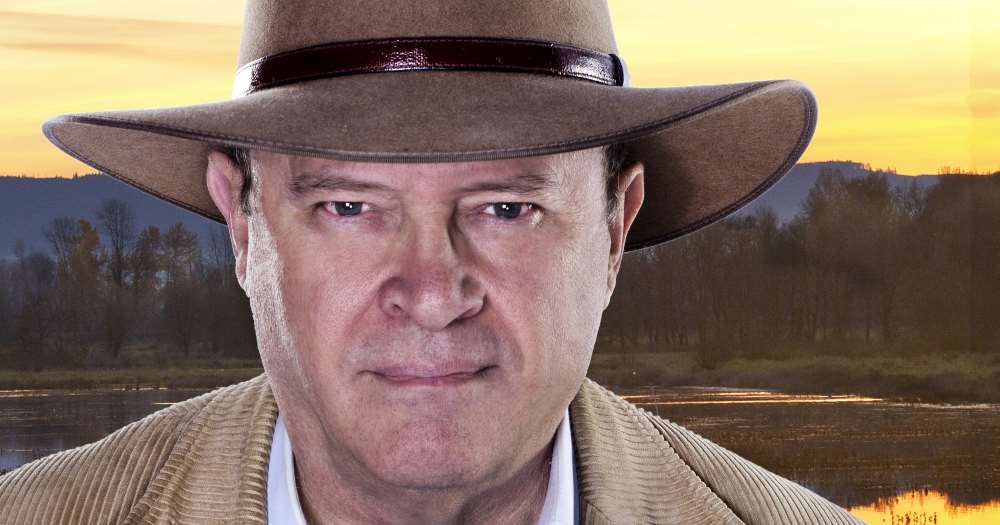About The Author

Geoffrey Holland
As a young person, I learned enough about our Earth and its living systems to understand that humans are rapidly exploiting our planet’s biosphere, the same biosphere all humans depend on for survival, to exhaustion.
After completing my undergraduate studies at Kansas State University, I enlisted and served for six years in the U.S. Army. I then went on to three years of graduate studies focused on the bio-medical sciences at the University of Washington.
At that point, I chose to become an active voice in service to nature. In concert with some other dedicated citizens, I wrote and produced a number of highly regarded documentaries, and other video material, all focused on correcting the human course where nature is concerned.
Along my journey, I have been profoundly influenced by some of the 21st century’s most distinguished and influential leaders. The list includes Jane Goodall, Riane Eisler, Paul Ehrlich, Carl Sagan, Paul Hawken, Mohammed Yunis, Hazel Henderson, Elisabet Sahtouris, Julian Cribb, Michael Charles Tobias, and E.O. Wilson. I have learned so much from these distinguished cultural pathfinders.
One of our time’s most iconic voices, the naturalist Jane Goodall, has inspired me with her wisdom about getting past the assumption of entitlement that has long defined the human relationship with nature. On correcting the human course, Dame Jane has said, “What you have to do is get to the Heart…The way to get to heart is with stories.”
Telling good stories that focused first on engaging and entertaining the reader became my passion. At the same time, I was determined that my writing inform and inspire with visions of what a worthy human relationship with nature looks like.
As I was learning the craft of fiction writing, I also pursued a career as a journalist. Over the years, I have found a place writing about gender-rights, agriculture and food security, clean renewable energy, and restoring our planet’s irreplaceable biodiversity.
In 2007, I was the principal author of The Hydrogen Age, a non-fiction book that presented hydrogen, the simplest, most abundant substance in the universe, as the fuel that powers nature, and as the likely successor to oil and other fossil fuels as the pollution-free energy commodity that in coming decades will power human society.
As a journalist, my work is accessible on Stanford MAHB, on Transition-Earth, and most recently at The Planetary Press.
The Genesis of Virtue
The inspiration for Virtue came from many people. Three in particular are reflected directly in the story.
The healing presence of Marc Wren is a fiction, but his selfless nobility was motivated by the extraordinary dedication of the late, real-life physician, Paul Farmer. The actual story of Doctor Farmer’s inspiring work in Haiti and other places came about through his wonderful, life affirming organization, Partners in Health (http://www.pih.org). Paul Farmer’s story of unswerving commitment is told brilliantly by author Tracy Kidder in his best-selling book, Mountains Beyond Mountains, Random House, 2004.
The compassion and commitment reflected in the Daria Kocanova character was inspired principally by the distinguished author and humanist, Riane Eisler. Having written extensively on the cultural evolution of gender relationships, Dr. Eisler calls for a caring, cooperative ‘Partnership Way’ between women and men to shape a planetary future that is life-affirming and sustainable. Riane Eisler’s website is The Center for Partnership Systems
Daria Kocanova’s work with Bonobos in the story was inspired by Jane Goodall and her pioneering studies of Chimpanzee behavior at Gombe stream in Tanzania.
Virtue succeeds first as an entertaining read, but more importantly, it offers a vision of the kind of cross-cultural cooperation and commitment among humans that will give us the best chance of achieving a future in which we learn to be worthy caretakers of the natural world we all depend on for our survival.
As the author, I am committed to assigning at last half of the income from Virtue to a range of non-profit groups whose activism is reflected in the story.